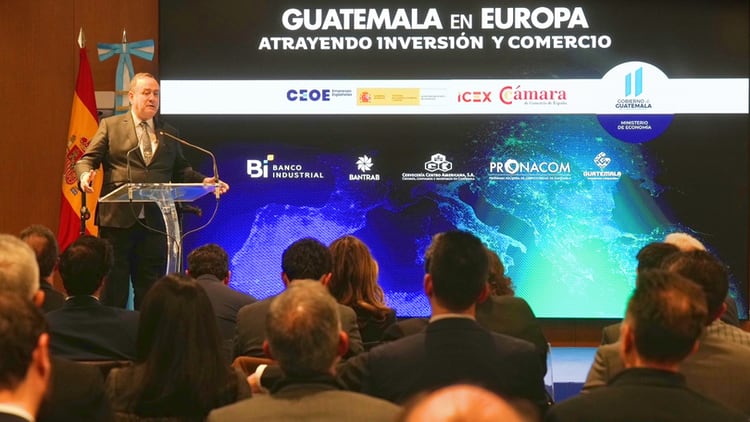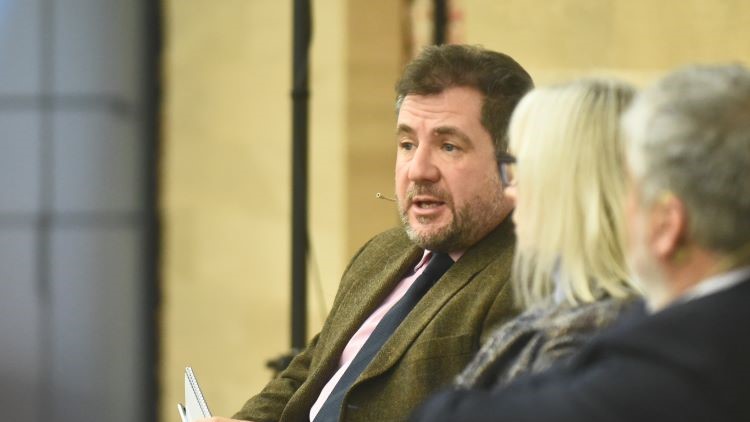The Diplomat
Guatemala presented yesterday in Madrid all the advantages it offers to companies wishing to invest in the country, which has become an important economic engine in Central America. The Guatemalan President, Alejandro Giammattei, led a large governmental delegation that was well attended at the CEOE headquarters.
At the meeting ‘Guatemala in Europe: Attracting investment and trade‘, Giammattei referred to Guatemala’s competitive advantages as an ideal destination for investment. Among them, he highlighted the macroeconomic stability, the pro-investment laws that have been promoted by the Executive and the ‘Guatemala No se Detiene’ plan, which constitutes “an unprecedented public-private effort for the economic transformation of the country and its sustainable development”.
The aforementioned plan, explained the president, is focused on Guatemala becoming an important ally for productive sectors such as pharmaceuticals, electronics, information technology and medical devices, among others. In addition, its objective is to create 2.5 million jobs over the next 15 years. The plan’s roadmap includes “forceful” actions to attract investment, promote competitiveness and offer greater legal security to investors, he added.
Guatemala’s macroeconomic data – whose GDP grew by 8% in 2021 and by 4% in 2022 despite the pandemic – give cause for optimism, as the Minister of Public Finance, Edwin Martínez, made clear. After analysing in depth the soundness of the country’s public finances, which will start in 2023 with a cash balance surplus from tax collection, Martínez stressed that in 2022 his government has invested more than ever in social spending and infrastructure.

The Minister of Economy, Janio Rosales, listed the reasons why companies see Guatemala as their best partner in the region: “the FTAs, which allow greater investment in key markets; its territory, which offers preferential access to global markets; its ports and airports, which constitute an intermodal logistics platform; having the largest installed capacity in the northern triangle for electricity production; its investment incentives; and its growing human talent, which is its most valuable resource”.
In a detailed presentation, the Superintendent of the Guatemalan Tax Administration, Marcio Livio Díaz, detailed the modernisation process of the Administration, which already carries out more than 90% of its procedures online and expects to reach 100% in the first half of this year.
The Secretary of State for Trade, Xiana Méndez, congratulated Giammattei on the excellent reputation achieved in recent years by Guatemala, of which she underlined “its commitment to inclusive economic growth, with an important social agenda, its leadership in the integration of Central America and its decisive opening up to foreign trade”.
In his speech, Méndez expressed his desire to analyse the status of the Double Taxation Agreement in order to further boost bilateral economic relations, which, he said, “must look to the future”.
For his part, the Vice-president of the CEOE, Miguel Garrido, recalled the importance of fostering a climate of trust, a stable regulatory framework and public-private alliances to give additional impetus to Spanish-Guatemalan economic relations.







